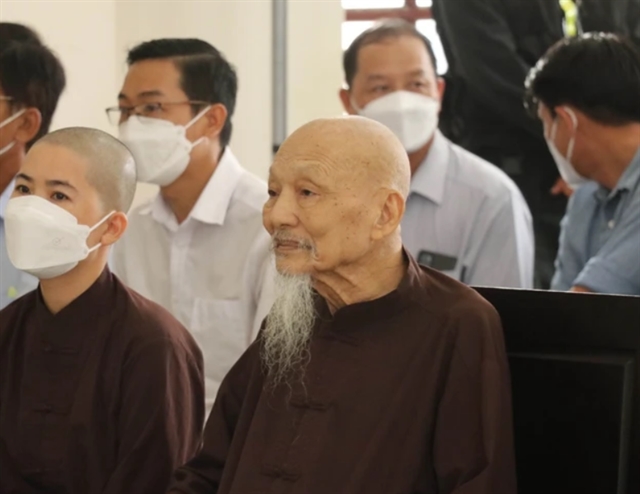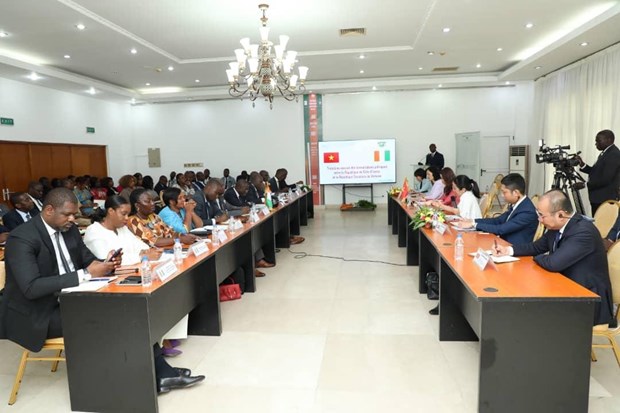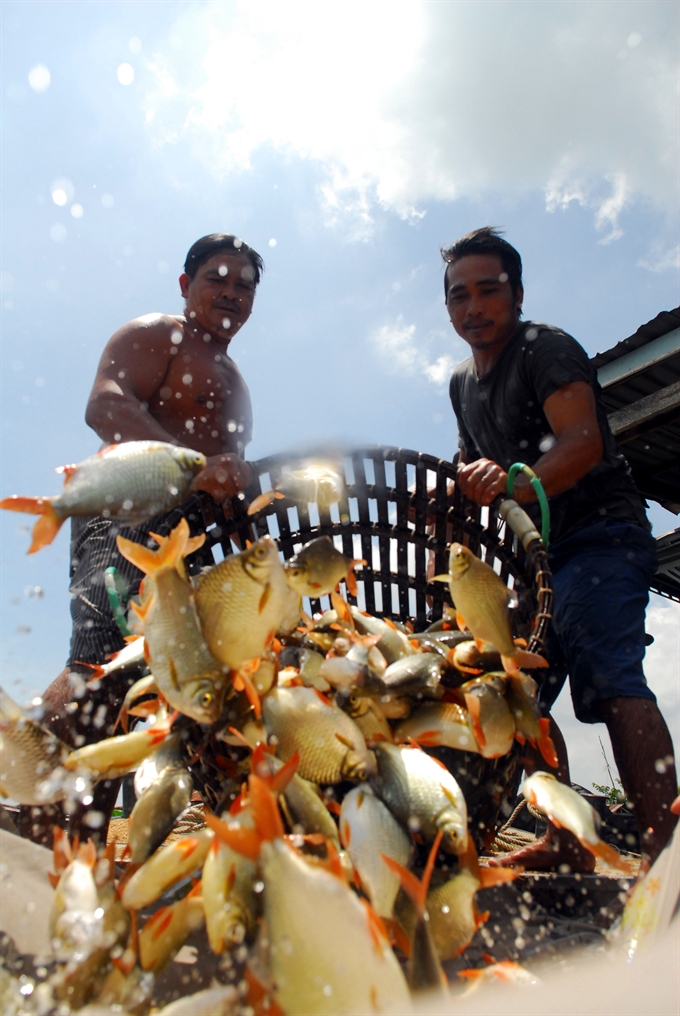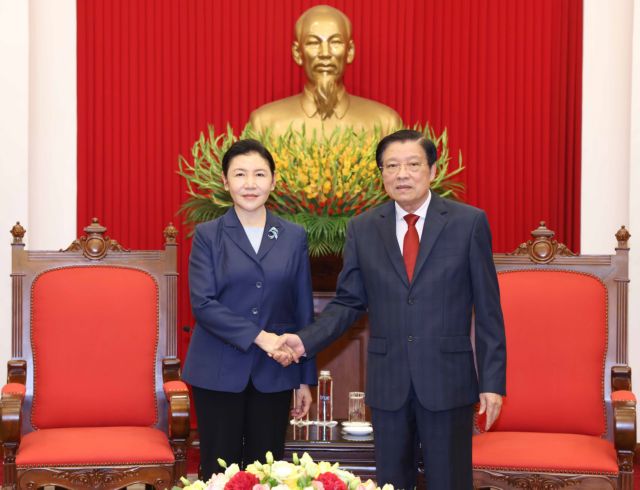 Society
Society

Prime Minister Nguyễn Xuân Phúc spoke yesterday about the critical role that the Mekong Delta plays in national development as well as the enormous challenges it faces, particularly in adapting to climate change and ensuring sustainable livelihoods for its residents.
 |
| Farmers from Châu Đốc fishing village in the Cửu Long (Mekong) Delta’s An Giang Province handle fish. - VNA/VNS Photo Mạnh Linh |
HCM CITY — Prime Minister Nguyễn Xuân Phúc spoke yesterday about the critical role that the Mekong Delta plays in national development as well as the enormous challenges it faces, particularly in adapting to climate change and ensuring sustainable livelihoods for its residents.
Speaking at the Mekong Delta Forum 2016 held in HCM City, Phúc noted that the Delta remained the main agricultural and fisheries area in the country, with more than 40 per cent of agricultural production, 70 per cent of fishery export value and 90 per cent of rice exports (about 7-8 million tonnes per year).
The area produces one-fifth of the world’s rice.
He said the poverty rate in the region was 3.9 per cent, lower than the national average of 4.45 per cent.
“We are channeling our efforts to develop the region as the country’s key agricultural area, aiming for rapid yet sustainable growth and having the Delta become a driving force for national development,” he said.
Despite the important role that the Mekong Delta plays in the development of Việt Nam’s southern region and the country as a whole, Phúc said it faced “enormous challenges related to water resources, saline intrusion, drought and other effects from climate change”.
Việt Nam is one of the countries most susceptible to climate change, with the most catastrophic impact expected to occur in the Delta, a low land with a 700-km coastline.
Experts predict that by the end of the 21st century, sea levels will have risen by one metre, and about 40 per cent of the region will be inundated.
Under this scenario, the livelihoods of nearly 55 per cent of the local population as well as food security in Việt Nam and the world would be threatened, Phúc said.
This year, saline intrusion has seriously affected the region, destroying or damaging crops. Salinity has intruded as far as 100 – 120km into the mainland.
More than 230,000ha of the winter-spring rice crop, 9,400ha of fruit trees and more than 5,000ha of aquaculture farms have been affected.
About 400,000 tonnes of rice were lost in the last winter-spring crop and 250,000 households are still in need of fresh water.
Mekong Delta Plan
Phúc said the Government was integrating climate-change adaptation activities into its socio-economic plans.
The Government, for example, has partnered with the Dutch Government to develop a Mekong Delta Plan using an integrated approach which promotes regional co-operation in climate-change response and natural disaster control.
The plan also seeks to take advantage of financial resources, including ODA funds, for critical and urgent investment projects.
Also speaking at the forum, Cao Đức Phát, Minister of Agriculture and Rural Development, said that damage caused by saline intrusion and flooding to coastal lands and agricultural yields required a new approach to agriculture and aquaculture
“For sustainable development of agriculture, the Mekong Delta needs to address these challenges through agricultural restructuring, together with the development of new rural areas in a climate-smart and multi-sectoral approach,” Phát said.
Trần Hồng Hà, Minister of Natural Resources and Environment, said there had never been a time when the Mekong Delta faced so many challenges, including climate change and rising sea levels, as well as pressure from unsustainable development.
Nienke Trooster, the Netherlands Ambassador to Việt Nam, also urged a multi-sectoral approach:
“We need the concerned efforts of all the good thinkers, good politicians and people in the private sector to help make the Delta climate-resilient,” she said.
Victoria Kwakwa, vice president for the World Bank’s East Asia and Pacific division, said it was important to move from a shared framework of general recommendations to more specific actions.
“The forum should come up with concrete suggestions that could be tabled to the Government,” Kwakwa said on the sidelines of the event.
The two-day forum will discuss the details of the Mekong Delta Plan, which articulates a vision for integrated development of the Delta.
It will seek to “deepen the dialogue on climate-change risks and adaptive strategies that involve integrated planning and inter-provincial and multi-sectoral collaboration”.
Case studies will examine sustainable and climate-resilient livelihoods and models and highlight the role of other stakeholders in scaling up to successful models.
Delegates to the forum will also “brainstorm the choices of structural and non-structural investments, the typical trade-offs involved, and the timing and the economics that will inform integrated and long-term decisions for the Mekong Delta.”
The forum, with the theme “Committed to a Prosperous and Climate-Resilient Mekong Delta,” was organised by the Ministry of Natural Resources and Environment, Ministry of Agriculture and Rural Development, and the Southwest Steering Committee.
It is being held in collaboration with the World Bank and the embassies of Australia and the Netherlands.
Besides the Prime Minister, ministers of Natural Resources and Environment as well as Agriculture and Rural Development are attending the forum, in addition to the vice-chairpersons of all 13 Mekong Delta provinces.
Senior officials of development partners like the World Bank and the governments of Australia, Netherlands and Germany, as well as the International Union for Conservation of Nature (IUCN), are also participating.
Around 200 delegates from the central government, provincial authorities, academic institutions, research agencies, embassies and international organisations are taking part in the forum. — VNS









